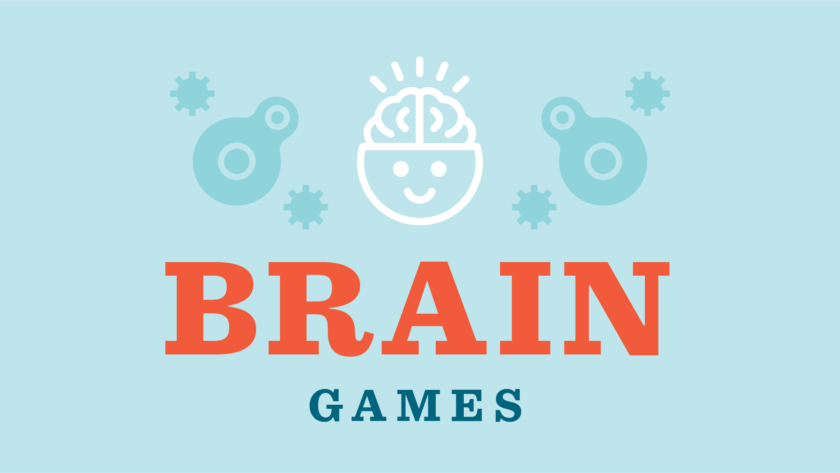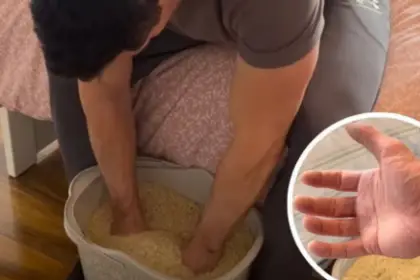Just like our bodies, our brain need exercise to stay healthy and functioning well as we age. Mental stimulation is key for building cognitive reserve and reducing the risk of neurodegenerative diseases like Alzheimer’s and other forms of dementia. While genetics and other factors play a role, regularly challenging your brain can go a long way towards maintaining a sharp memory, quick thinking skills, and overall cognitive vitality.
In this article, we’ll explore 8 fun and effective brain games that research has shown can help keep your brain young and resilient against aging. These activities target different cognitive skills like memory, attention, problem-solving, visual-spatial abilities, and more.
So whether you’re already noticing some mild cognitive decline or simply want to stay mentally sharp as long as possible, use these 8 brain games to keep your mind active and engaged. Just like going to the gym strengthens your muscles, exercising your brain can build cognitive reserve to help you think fast, focus clearly, and remember more – now and for years to come. Let’s dive in and start training your brain!
What is Alzheimer’s Disease/ Dementia
Alzheimer’s disease is the most common cause of dementia. It is a progressive, degenerative brain disease that leads to memory loss, confusion, impaired thinking and other cognitive difficulties. In Alzheimer’s, abnormal protein deposits called amyloid plaques and tau tangles build up in the brain, damaging connections between nerve cells and eventually destroying brain tissue.
- Dementia is a general term for cognitive decline that interferes with daily functioning. There are many different types and causes of dementia, but the most common is Alzheimer’s disease. Other types include vascular dementia, Lewy body dementia, frontotemporal dementia, and mixed dementia.
- While Alzheimer’s specifically refers to a disease process defined by amyloid plaques and tau tangles, dementia is a broader syndrome defined by its symptoms. All Alzheimer’s disease leads to dementia, but dementia can also be caused by other conditions like strokes, Parkinson’s disease, Huntington’s disease, etc.
- Both Alzheimer’s and other forms of dementia cause progressive deterioration in memory, reasoning, communication skills and other cognitive abilities. However, the specific symptoms and progression can vary quite a bit among the different types of dementia.
- Currently, Alzheimer’s disease has no cure and treatments only temporarily ease symptoms. However, research is making progress on developing better diagnostics, new medications to slow disease progression, and possibly therapies to target the underlying disease process. The goal is to find ways to prevent, slow or stop the damage Alzheimer’s causes in the brain.
- It is thought that Alzheimers and Dementia may be caused and/or accelerated by heavy metals found in foods, medications, and our water systems. The best way to detox from these heavy metals is by ingesting small amounts of Activated Charcoal through a 2-3 week period of time. Get Your High Quality Activated Charcoal Here.
In summary, Alzheimer’s is a specific disease that accounts for 60-80% of dementia cases, while dementia is a syndrome that can result from different diseases damaging the brain. Understanding the differences helps distinguish the root causes and guide treatment approaches.
8 Fun & Effective Brain Games
1. Chess
- It requires strategic thinking, planning moves ahead, and visualizing possibilities – building working memory, reasoning and problem-solving.
- Remembering moves and positions engages visual memory and recall ability. The complexity improves focus and concentration.
- Playing against an opponent requires cognitive flexibility to anticipate their strategies – an ability that declines with dementia.
- Chess utilizes the whole brain, promoting better neural connections and “cognitive reserve” to withstand diseases like Alzheimer’s.
- Playing regularly slows cognitive decline by about 5 years according to studies of elderly chess players.
2. Sudoku
- It requires logical thinking and problem-solving to correctly fill the number grid – building executive functions.
- Recalling rules and trying combinations engages working memory and attention.
- Increasing puzzle difficulty improves concentration and focus.
- Solving new grids enhances cognitive flexibility.
- Completing sudokus utilizes the whole brain, promoting neural connections and cognitive reserve.
- Daily mental challenge helps reduce dementia risk.
- Regular play slows cognitive decline by improving reasoning, memory and processing speed.
3. Crossword
- Crosswords require retrieving facts and vocabulary, exercising memory to potentially improve recall ability.
- The challenge of figuring out clues engages executive functions like logic, reasoning and problem-solving.
- Progressively harder puzzles build concentration power and mental stamina.
- Decoding clues flexibly shifts your perspective and thought processes. This enhances cognitive flexibility.
- Completing crosswords utilizes multiple brain regions, strengthening neural connections and cognitive reserve.
- As an enjoyable activity, it provides daily mental stimulation to reduce dementia risk.
- Regular crossword solving helps maintain reasoning, processing speed, and verbal skills.
4. Scrabble
- Scrabble requires retrieving words from your vocabulary, exercising verbal memory and recall.
- Formulating word plays engages executive functions like strategic thinking and problem-solving.
- Progressively challenging games build your concentration powers and mental endurance.
- Finding multiple word options enhances your cognitive flexibility.
- Competing activates multiple brain regions, strengthening neural connections and cognitive reserve.
- As an enjoyable social activity, it provides regular mental workout to help reduce dementia risk.
- With continued play, Scrabble helps maintain your verbal fluency, visual processing, and reasoning abilities.
5. Tetris
- Tetris requires visualizing and manipulating complex shapes, which exercises spatial cognition and problem-solving skills.
- Making quick decisions about rotating and fitting blocks engages executive functions like attention, planning, and working memory.
- As the game speeds up, players build mental stamina, concentration, and reaction time.
- Adapting to different block sequences enhances cognitive flexibility.
- Mastering Tetris utilizes multiple brain regions and strengthens neural connections for greater cognitive reserve.
- As an engaging activity, it provides a daily mental workout that can help reduce dementia risk.
- Studies show regular Tetris leads to improved visuospatial processing, faster decision-making, and greater efficiency of brain activity.
6. Checkers
- Checkers requires foreseeing moves and planning strategy, exercising executive functions like reasoning, problem-solving and working memory.
- Visually tracking pieces engages attention, concentration and visual processing skills.
- Progressively challenging opponents builds your mental stamina and focus.
- Adapting strategy against new opponents enhances cognitive flexibility.
- Playing checkers utilizes multiple brain regions, strengthening connections for greater cognitive reserve.
- As an enjoyable activity, it provides regular mental stimulation that can help reduce dementia risk.
- Studies show older adults playing checkers had improvements in thinking speed, logic and visual memory.
7. Rubik’s Cube
- A Rubik’s cube requires visualizing 3D shapes and patterns, exercising spatial cognition and visual processing skills.
- Figuring out move sequences engages executive functions like logic, reasoning, and problem-solving.
- Progressively faster solving builds up concentration, mental flexibility and processing speed.
- Adapting to different starting cubes enhances cognitive flexibility.
- Mastering the Rubik’s cube utilizes multiple brain regions, strengthening neural connections and cognitive reserve.
- As a portable puzzle, it provides engaging mental stimulation daily to potentially help reduce dementia risk.
- Studies link practicing the Rubik’s cube to improvements in visuospatial skills, working memory, and executive functions.
8. Solitaire
- Solitaire requires planning ahead, exercising executive functions like strategic thinking and visual-spatial reasoning.
- Memorizing card locations engages working memory and attention skills.
- Progressively difficult games build concentration, focus and mental stamina.
- Adapting strategy to different card deals enhances cognitive flexibility.
- Mentally manipulating cards utilizes multiple brain areas, strengthening connections for greater cognitive reserve.
- As an enjoyable solo activity, it provides regular mental exercise that may help lower dementia risk.
- Studies show older adults practicing solitaire had improved short-term memory, concentration, and problem-solving abilities.
Staying mentally sharp and building up cognitive reserve is key to maintaining brain health as we age. The good news is there are many engaging brain games that research has shown can help keep our minds nimble and potentially delay cognitive decline.
From classic strategy games like chess and checkers to portable puzzles like sudoku and the Rubik’s cube, games that stimulate executive functions, focus, memory, and flexible thinking seem particularly beneficial. Trying a variety of these 10 brain games can exercise your mind in different ways for fuller mental stimulation.
Make brain games part of your routine for a daily mental workout. Just as we schedule time for physical exercise, pencil in regular time to challenge your mind – whether Solo with solitaire or in fun social settings. Stay mentally engaged in work and hobbies as well. Keep your brain active now to help reduce your dementia risk and keep your mind sharper for longer.
While genetics plays a role, cognitive stimulation may help build the brain reserve needed to withstand aging and neurodegenerative disease. So enjoy picking up a game that engages and strengthens your mind – it’s never too late to start improving your cognitive fitness!




